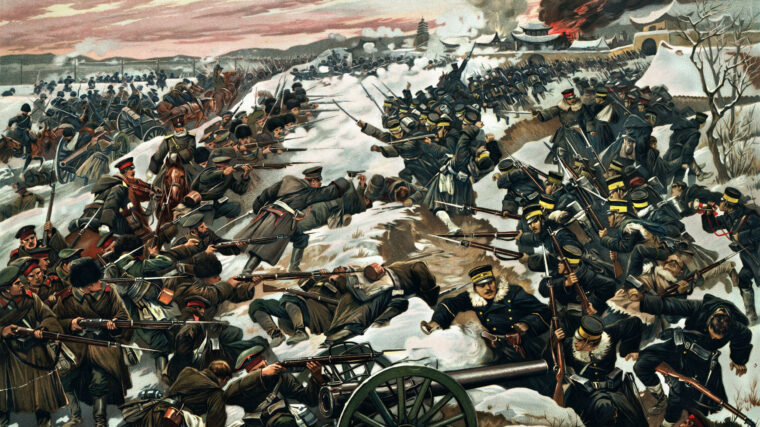
Bloodbath at Mukden: Imperial Russia and Japan Collide
By Louis CiotolaJanuary and February 1905 were critical months for both the Russian and Japanese empires, which were locked in a war over East Asia that neither of them could sustain. Read more

January and February 1905 were critical months for both the Russian and Japanese empires, which were locked in a war over East Asia that neither of them could sustain. Read more
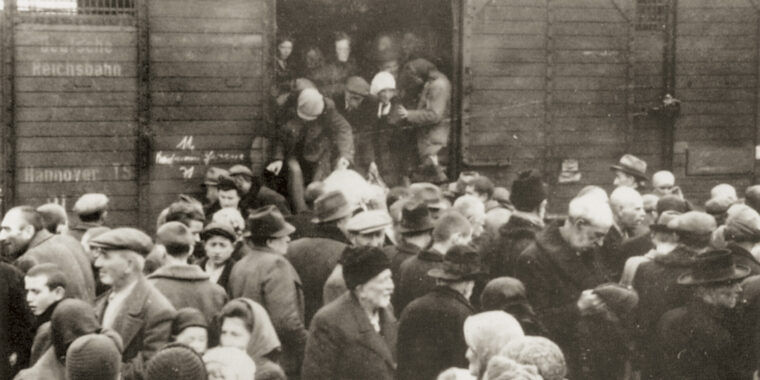
It is, perhaps, not as well known as other prewar and wartime gatherings of the World War II era, but the quietly held meeting of top Nazi bureaucrats at a secluded villa on Lake Wannsee in the Berlin suburbs on January 20, 1942, was just as much a landmark event as others with higher profiles. Read more
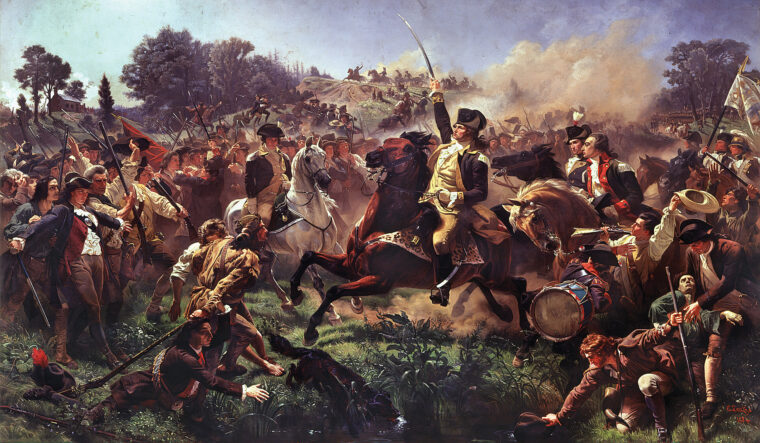
On June 19, 1778, Continental soldiers marched out of Valley Forge, happy to leave the rough wooden cabins where they had spent a miserable winter; cold, hunger, and disease had been their constant companions. Read more
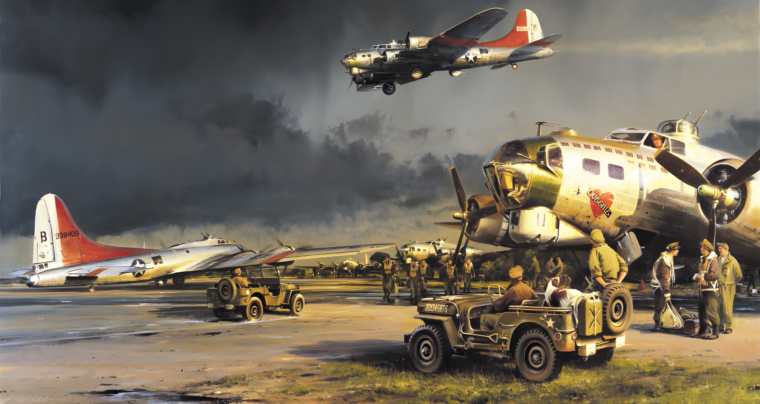
When World War II in Europe came to an end, the Eighth Air Force was the most famous unit in the U.S. Read more
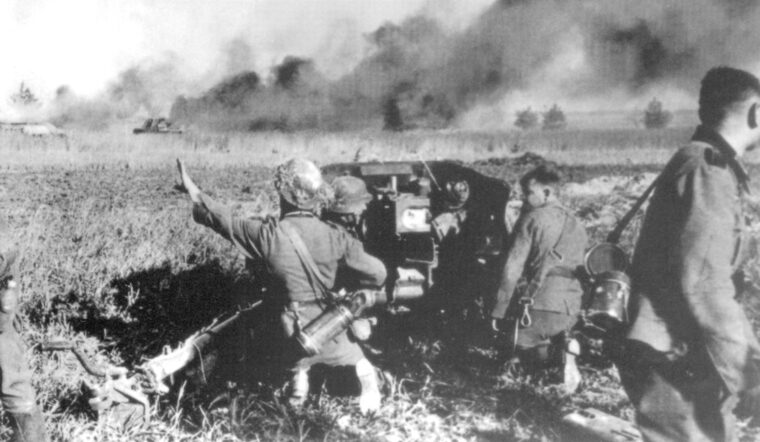
The American jeep holding the 3rd Belorussian Front Commander, General Ivan Danilovich Chernyakhovsky, drove quickly through the city of Mehlsack, just outside Königsberg. Read more
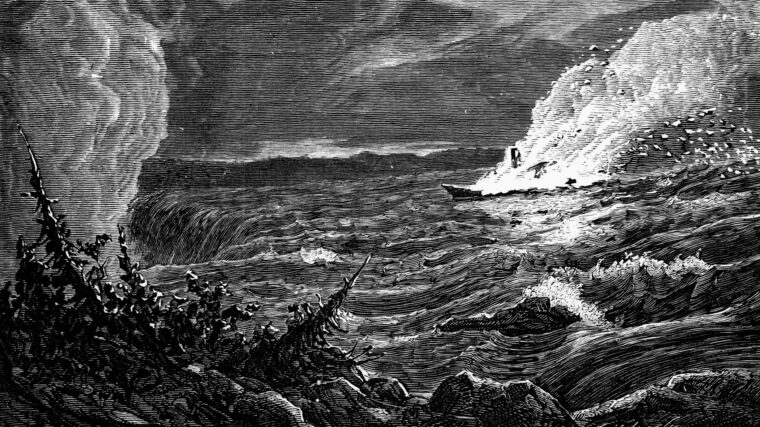
In December 1837, 400 men armed with muskets, pitchforks, and staves marched against the city of Toronto and the British government. Read more
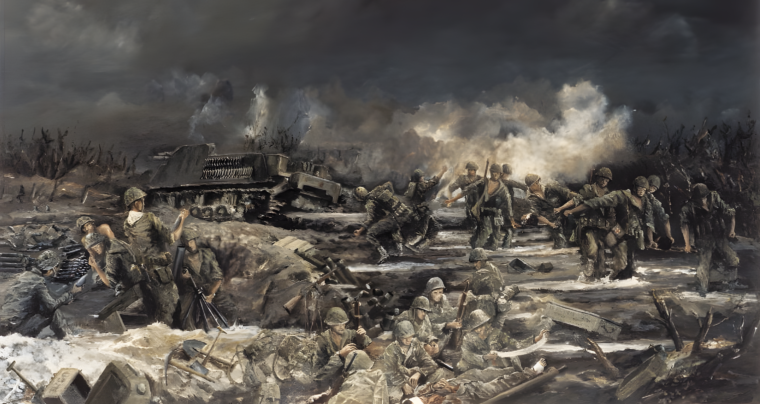
Although neither side was aware of it at the time, the battle for Okinawa would be the last major battle of World War II. Read more
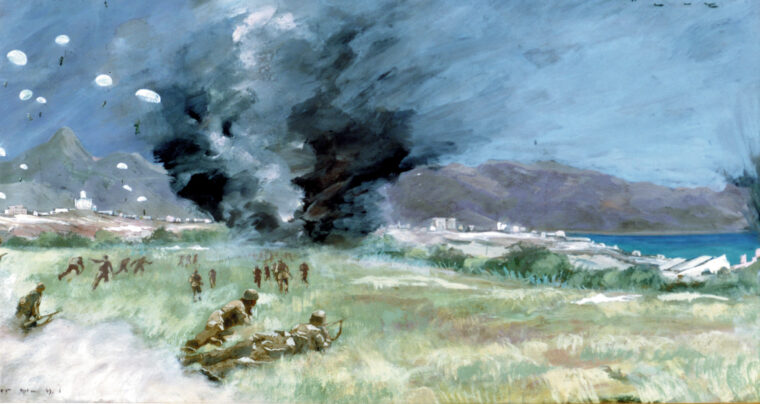
In May 1941, General Kurt Student’s elite paratrooper forces descended like an anvil on the British garrison defending Crete. Read more
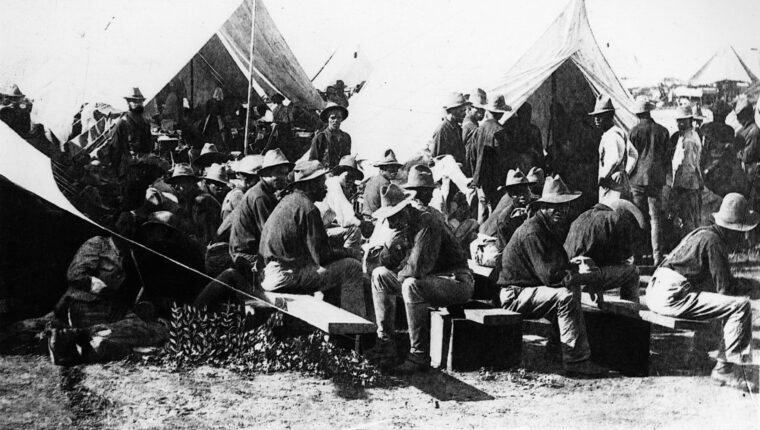
The khaki-clad soldiers wounded in the steaming jungles of Cuba during the Spanish-American War had distinct advantages over their Civil War brethren. Read more
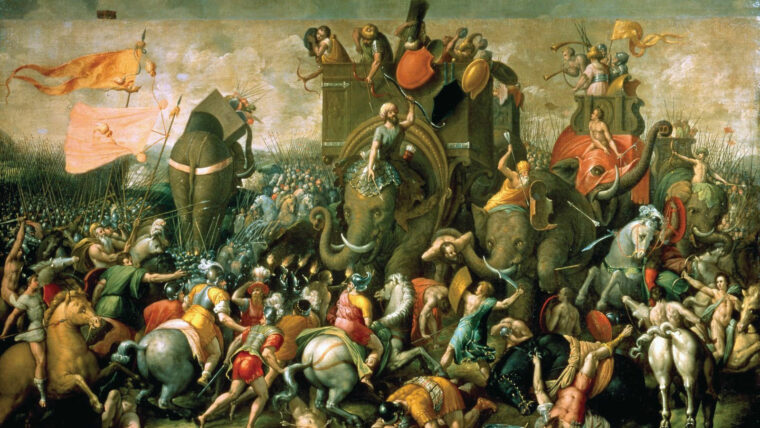
Imagine a time when human knowledge of elephants was not widespread. Just think how threatening these large animals would be coming over a hillside or out of a mist during battle. Read more
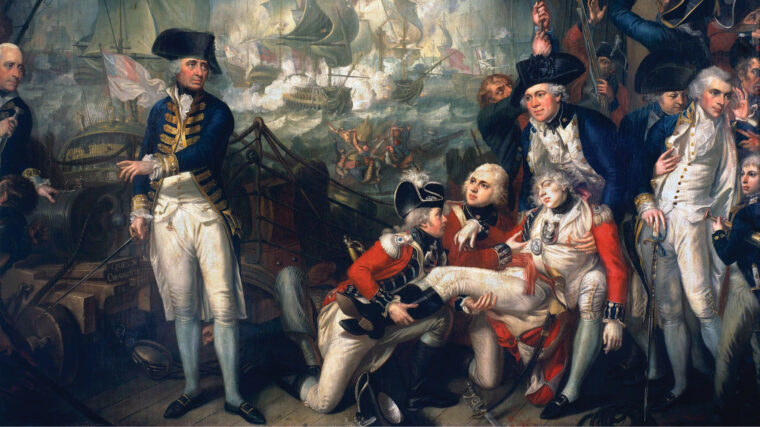
British Admiral Lord Richard Howe, standing on the quarterdeck of his 100-gun ship of the line Queen Charlotte, snapped his signal book shut on the morning of June 1, 1794. Read more
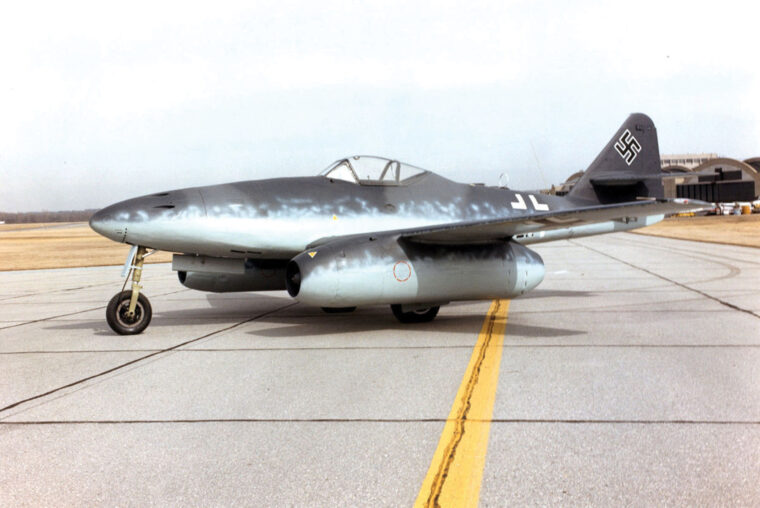
The Germans knew the bombers were coming, and they prepared even as the U.S. 457th Bomber Group first assembled in the early morning sunlight over faraway London. Read more
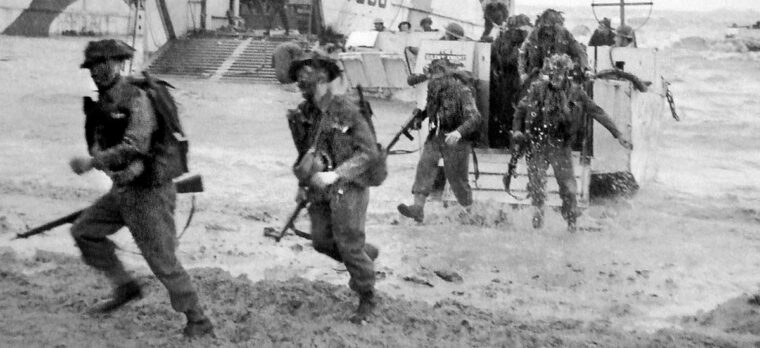
A chill breeze cut through the early morning haze, and the storm-swollen sea was rough off the coast of northern France on Tuesday, June 6, 1944. Read more
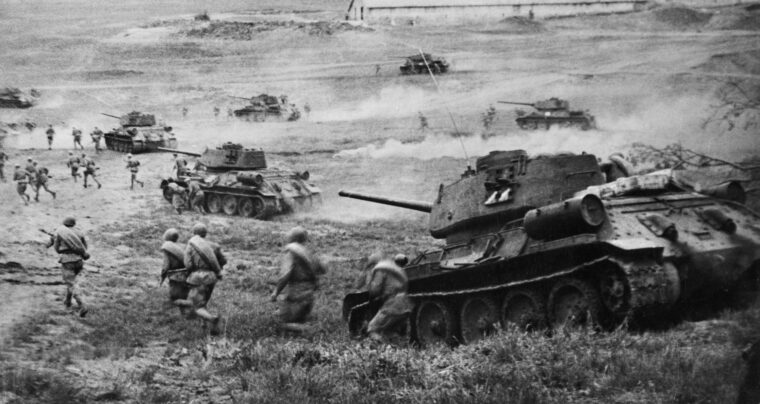
The city of Ternopil, located on the eastern bank of the Seret River, was founded in 1540 as a Polish military stronghold. Read more
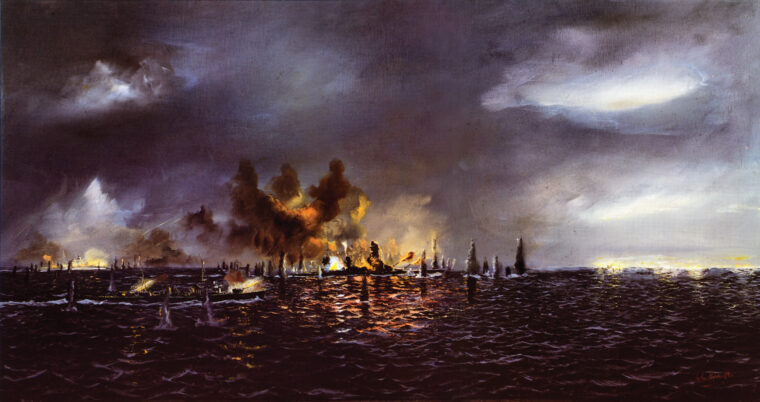
In the distance, they could see the jagged flashes of lightning, an incoming squall in the dark. Just before the rain arrived, so did St. Read more
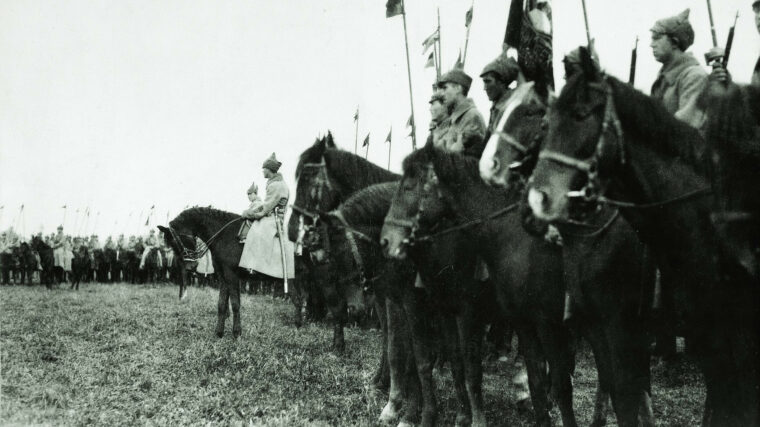
The Russo-Polish War of 1919-1920 was the most portentous event facing post-Versailles Europe. It was not just the continuation of a centuries-long contest between Russia and Poland to determine which would dominate eastern Europe, but a struggle involving a new ideology—communism—which the Bolshevik regime in Moscow had to spread throughout the Continent to survive. Read more
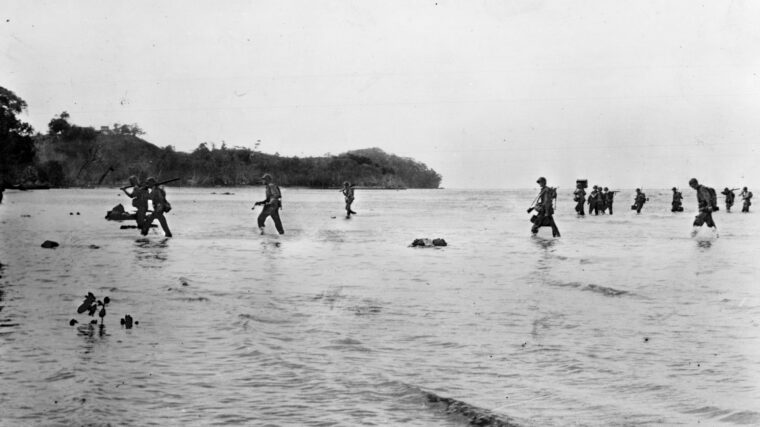
The strategic defeats suffered in the Battles of the Coral Sea and Midway checked Japan’s advance in the Pacific. Read more
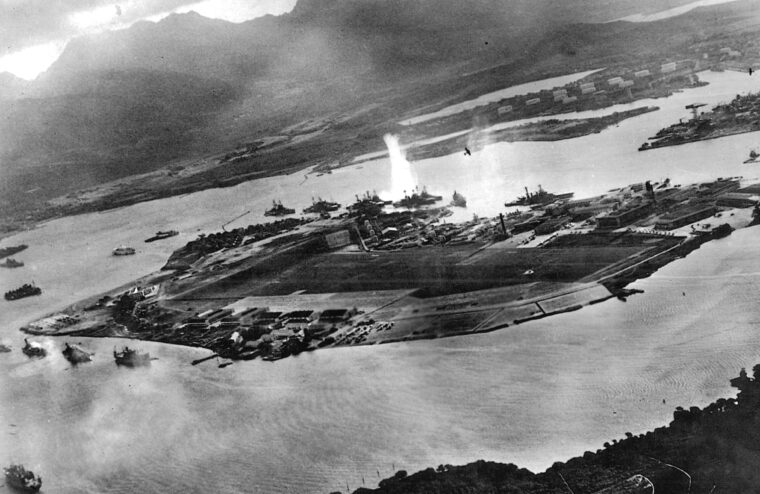
Gene Verge was born in Pasadena, California, in 1918. As a young man in 1941 he faced the probability of being drafted. Read more
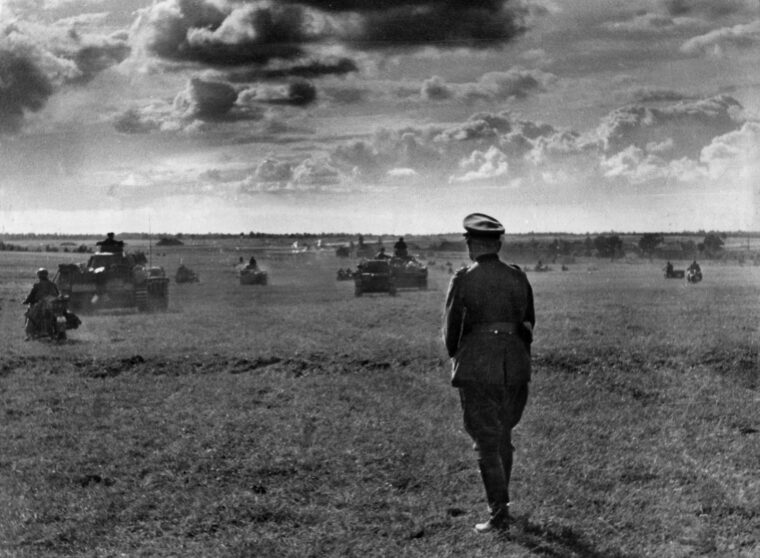
Hitler was enraged as he stalked his way around the room during the waning months of World War II. Read more
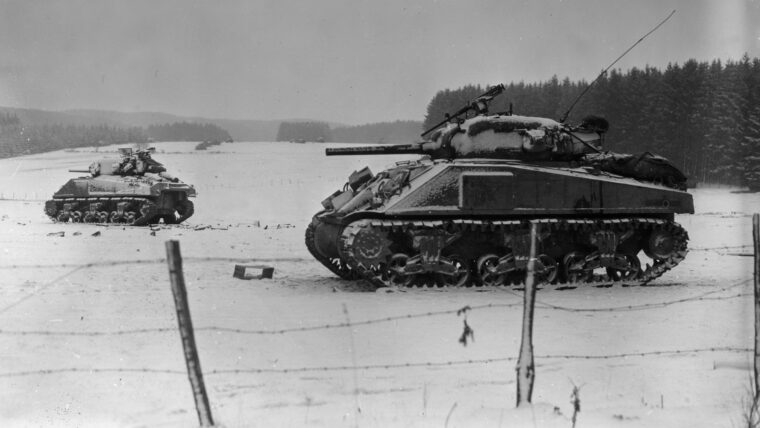
After four months and a 600-mile advance from the beaches of Normandy into Brittany and then through eastern France, the spearhead of Lt. Read more